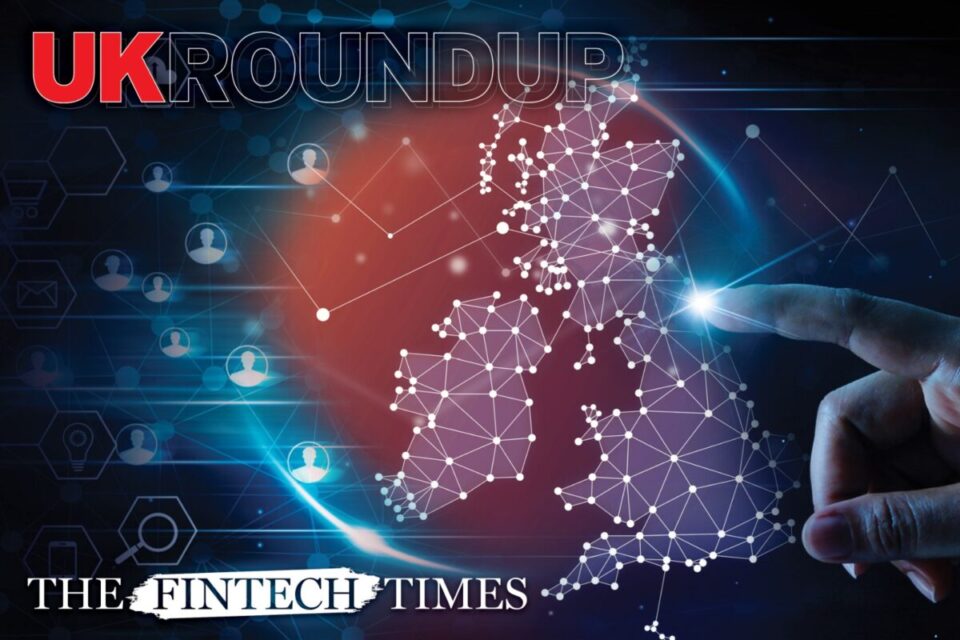Each week The Fintech Times takes a lot at some of the top stories in UK fintech. In this weeks round-up, 30% of Brits feel anxious about their finances, UK is the 4th most cashless country in Europe and finance leaders think Covid business recovery could take up to four years.
Monthly car insurance on the rise as Britons budget their money

A survey reveals Britons are turning to monthly car insurance payments as an alternative to a large annual lump sum. Around a third of drivers in the UK now pay for car insurance monthly. With around 32 million registered cars on the road that equates to over 10 million drivers.
Following a difficult financial year for many, the monthly car insurance trend is on the rise, suggests flexible car insurance provider, Cuvva as Britons find it easier to budget their money with regular payments.
Andy Tomlinson, COO at Cuvva said: “People want simple financial products that suit their needs. Millions of drivers no longer want to be tied into long annual car insurance contracts or be faced with big upfront payments.”
According to a Censuswide survey, of the drivers that pay monthly, more than half (51%) choose monthly premiums because they can’t afford to pay one lump sum. In addition, people are drawn to monthly car insurance over annual cover because they find it more convenient (41%) and can manage the cost more easily (37%).
A new study reveals 30% of Brits feel anxious about their finances
 After COVID-19, it comes as no surprise that Brits are feeling anxious about managing their finances. The new financial anxiety report from Shawbrook Bank has revealed Brits’ current concerns and anxieties when it comes to lending and borrowing money.
After COVID-19, it comes as no surprise that Brits are feeling anxious about managing their finances. The new financial anxiety report from Shawbrook Bank has revealed Brits’ current concerns and anxieties when it comes to lending and borrowing money.
59% of Brits agree that the written language used in personal loan applications, and documents, is confusing and not easy to understand. – More than 1 in 2 Brits confirm that confusing language would put them off of applying for a personal loan. Just 16% of Brits admit to reading the T&Cs of a finance agreement ‘very thoroughly’ before going ahead with their application. – To understand this financial jargon, 34% stated they would search terminology on Google and 6% said they wouldn’t ask anyone for help.
UK Charity Embracing Cryptocurrency for Donations

As cryptocurrency has continued to gain recognition, UK Charity, National Zakat Foundation (NZF), are embracing digital currency as a way to make donations. The charity, which collects and distributes Zakat to UK-based Muslim communities, believes its crucial to keep up with technological trends and donor habits, and accepting cryptocurrencies is the next logical step.
Monir Mohammed, head of technology for NZF, explained, “With a society as fast-paced as ours, it’s so important that charities evolve at the same speed. Accepting cryptocurrencies will unlock a whole new realm of donors, as well as progress with existing ones.”
“The third sector isn’t known for being at the forefront of technological innovations, however, investing and developing in line with these changes can attract future donors, specifically the younger demographic.”
UK is the 4th most cashless country in Europe
 The world’s most cashless economies have been revealed in a new report by the credit card experts at money.co.uk. The UK is Europe’s 4th most cashless economy. The latest World Bank data shows 91% of Brits (aged 15+) own a debit card and 65% (aged 15+) own a credit card.
The world’s most cashless economies have been revealed in a new report by the credit card experts at money.co.uk. The UK is Europe’s 4th most cashless economy. The latest World Bank data shows 91% of Brits (aged 15+) own a debit card and 65% (aged 15+) own a credit card.
Commenting on the results of the Cashless Countries report, James Andrews, senior personal finance expert at money.co.uk, explains how the pandemic may have changed the way we use money forever:
“In the past 12 months, we’ve witnessed more than 40 countries increase the limits for contactless payments and in the UK the Government has placed emphasis on using contactless methods of payment where possible. The move away from banknotes and coins towards plastic payments and e-wallets presents many advantages. Cashless payments will allow for quick and easy transactions when international travel fully resumes, and the creation of digital paper trails could help reduce tax fraud and money laundering.
“However, as with many technological advancements, there is some concern that the change could leave vulnerable individuals behind. As things stand, shops are also well within their rights to refuse cash payments in the UK if they choose to go fully cashless – potentially excluding people unwilling or unable to pay with a card or smart device.
“That means any move towards a fully cashless economy will need to be met with infrastructural changes, as well as potentially legislative ones, to ensure every individual within a society has what they need in order to pay for essential goods and services.”
American Express Upgrades the UK Business Gold Card

American Express announced that American Express Business Gold Cardmembers in the UK can now earn up to 50% more Membership Rewards points when they spend £20,000 per quarter.
The increased rewards come alongside flexible benefits, new savings and discounts, and enhanced employee card controls designed to help businesses drive more value from their spend as they once again refocus on growth.
Evan Lubeck, VP Commercial Products at American Express, said: “We know that UK business owners are passionate about their businesses. We want our products to work just as hard for them, so we’ve evolved the Business Gold Card to offer more rewards than ever. The new Card unlocks more rewards as customers consolidate spending on all kinds of business purchases, and offers them the power to easily manage employee spending at their fingertips. Our new benefits aim to help businesses thrive, as people are once again feeling more confident about the economic outlook.”
UK is named the 8th worst cyber safe country
 Research by ESET found that Portugal scored highest for cyber safety with a result of 8.21 out of 10, followed by Lithuania and Slovakia, who produced scores of 7.99 and 7.21 respectively. Notably, the United Kingdom finished outside of the top 10, placing 16th out of 24 with a score of 5.59.
Research by ESET found that Portugal scored highest for cyber safety with a result of 8.21 out of 10, followed by Lithuania and Slovakia, who produced scores of 7.99 and 7.21 respectively. Notably, the United Kingdom finished outside of the top 10, placing 16th out of 24 with a score of 5.59.
The United Kingdom has the lowest exposure rank in Europe, with a score of 5 (lower rank indicates a higher exposure, exposure rank indicates how exposed each country is to cybercrime). Meanwhile, the UK also scored the highest for commitment to cybersecurity with a score of 0.931 (out of 1).
Jake Moore, Cybersecurity Specialist for ESET, said: “While it’s disappointing to see the UK ranking so far down The European Cybersecurity Index, it is encouraging that the nation has scored so highly for commitment to cybersecurity. With every new initiative, we become a step closer to a safer internet for everyone. Ultimately, cybersecurity works best when we work together, whether that’s between individual people or entire countries. As the internet is international, no one country can be responsible for cyber safety. Recent events have shown us that co-operation and collaboration are more important than ever.”
Two-thirds of UK financial services companies now use alternative data to improve decision making

Financial services companies in the UK are increasingly relying on web scraping alternative data sources, with almost two-thirds (63%) using alternative data to improve their decision-making process. This is one of the key findings from the Oxylabs white paper: ‘The Growing Importance of Alternative Data in the Finance Industry’, which reveals a huge rise in web scraping for alternative data over the last twelve months.
The findings highlight web scraping and financial transactions as the most common sources of alternative data for investors and financial services firms. This consists of ‘non-traditional’ data sources that have not previously been analysed, including app downloads and usage metrics, social media sentiment, website traffic statistics, search and other non-traditional data sources (senior staff hiring’s, corporate flight activity, supply chain).
Julius Černiauskas, Chief Executive Officer at Oxylabs, comments: “The huge increase in online alternative data sources has instigated a sharp spike in demand for web scraping services from financial services firms looking to overcome the challenges of the pandemic. At Oxylabs, we have experienced a threefold surge in inquiries from financial services firms over the last year, so we were keen to learn how exactly these organisations were approaching data gathering and analysis.”
Covid business recovery could take one to four years

It will take more than one year for businesses to recover from the effects of the global pandemic, says a new survey of UK finance leaders by Yooz. The figures show that UK businesses will take an average of 13 months to recover, with 43% of UK finance leaders believing it will take one to four years to fully recover. Just 30% believe they will be able to return to pre-Covid levels in under six months.
“The impact of the pandemic twinned with Brexit disruption is acting as a two-pronged assault on UK businesses and if not managed correctly could derail them completely,” said Francois Lacas, Deputy Chief of Operations at Yooz.
“Having spent the last year trying to keep businesses solvent, while dealing with working remotely, furloughed staff and cash flow uncertainty finance departments across the UK continue to face tough decisions.
“Any future investments will need to be closely monitored to prove that they create efficiencies, ROI and are considerate to a more flexible working model if we’re to overcome any further disruption.”



